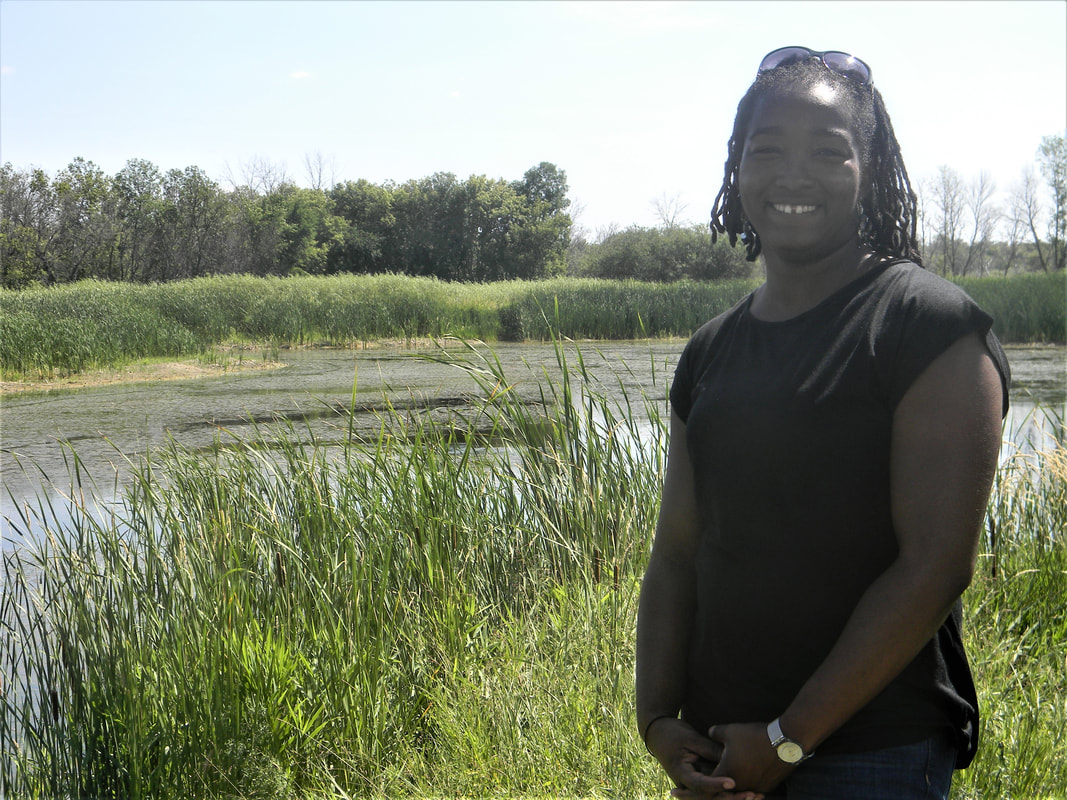I like the fact that I am not being asked to provide a definition of ecohydrology but rather to say what it means to me… :-) To me, ecohydrology is an umbrella term that best illustrates the two disciplines I mostly draw from in my teaching and my research. Ever since I started my Ph.D., I have been looking for new or different (statistical) analysis tools or models to address hydrological questions, just get a different perspective. I have found that regardless of whether we think of catchment classification, flowpath network topology or hydrologic connectivity, there are interesting tools we can borrow from computer science, ecology, or neuroscience. It just so happens that a lot of the tools and modeling frameworks I use are borrowed from ecology. Using the ecohydrologist label for myself means that I am not just borrowing from another discipline; I am rather merging disciplinary views and allowing myself to benefit from a greater diversity of opinions and approaches to frame my own work.
What are your undergraduate and graduate degrees in?
I did a B.Sc. in Environmental Geography at the Université de Montréal (Québec, Canada). I found it to be a great first program because even though I was enrolled in the physical geography stream, I was required to take a bunch of human geography courses as well, and those courses really broadened my horizons early on. I then moved on to do a Ph.D. in Geography, still at the Université de Montréal.
How did you arrive at working in/thinking about ecohydrology?
By force of circumstance, I would say. My Honors thesis was focused on the modelling of a small forested catchment, and we knew that whenever we got that model to perform OK, we were getting the right answers for the wrong reasons. Together with my Honors thesis advisor at the time, André Roy, I came to realize that it could be because the model was incapable of resolving the complex hydrologic connectivity dynamics driving the catchment response, and that is how my Ph.D. thesis topic was born. When I started working on connectivity in 2005-2006, I really had to dive deep into the ecology literature because that is where most of the connectivity research was reported at the time. So, that is how I initially got into eco-hydrology work, and my interests just grew from there. Looking at ecohydrological systems as complex systems with their thresholds and other emerging properties, studying plant-soil-water relations in agricultural regions, and trying to quantify multi-material connectivity (i.e., water, nutrients, sediment and biota) in human-impacted landscapes, are just a few areas of ecohydrology that I focus on in my teaching and research.
What do you see as an important emerging area of ecohydrology?
There are lots of emerging areas and/or issues in ecohydrology, but the one I see as maybe the most urgent to tackle is ecohydrology at the science-policy-practice interface. Even before ecohydrology was officially called a “new discipline”, there had been fantastic theoretical developments about how water influences biota and vice versa. The “new discipline” has greatly accelerated the rate at which mechanistic process explanations are being put forward, confirmed with new data or models, or infirmed with new data or models. What we still seem to be missing, though, is a broad discussion of what those new findings mean for land, water, nutrient or ecosystem management (take your pick!). How should threshold-driven ecohydrological systems be managed? Should ecohydrological systems displaying weak emergence be managed differently than those exhibiting strong emergence? How can the concepts of hot spots and hot moments (sensu McClain et al., 2003), or the idea of ecosystem control points (sensu Bernhardt et al., 2017), be used to guide the timing and method of fertilizer application on agricultural land? Is there an optimal multi-material landscape connectivity level that environmental managers should aim for? How can community watershed models be designed in a parsimonious way to operate at large scales while retaining critical ecohydrological process information? Those are not low-hanging-fruit questions, by any means, but they are key for knowledge translation.
Do you have a favorite ecohydrology paper? Describe/explain.
There are a few I can think of, on a wide variety of topics, but the one I will mention is the “Watershed functions” paper by Peter Black (1997; Journal of the American Water Resources Association, 33: 1-11). It discusses five key watershed hydrological and ecological functions and how they relate to “attenuation” and “flushing” responses. There are many ways we can assess the health and/or resilience of watersheds, some of them very sophisticated and detailed, but I really like the idea of doing so through five simple, basic “ecohydrological” functions. This paper is one of my favorites because it is very pedagogical/approachable and I can use it as a discussion starter in any context: research, undergraduate teaching, graduate teaching, or discussion with stakeholders and policy makers.
What do you do for fun (apart from ecohydrology)?
In no particular order, I enjoy going on forest walks, travelling (when we can), watching natural disaster movies (the nerd in me likes fact-checking them), and trying my best at becoming an expert in allergen-free baking. Some of my new pandemic lockdown-induced hobbies include growing vegetables and knitting. Being anywhere with family wins the cake.

 RSS Feed
RSS Feed